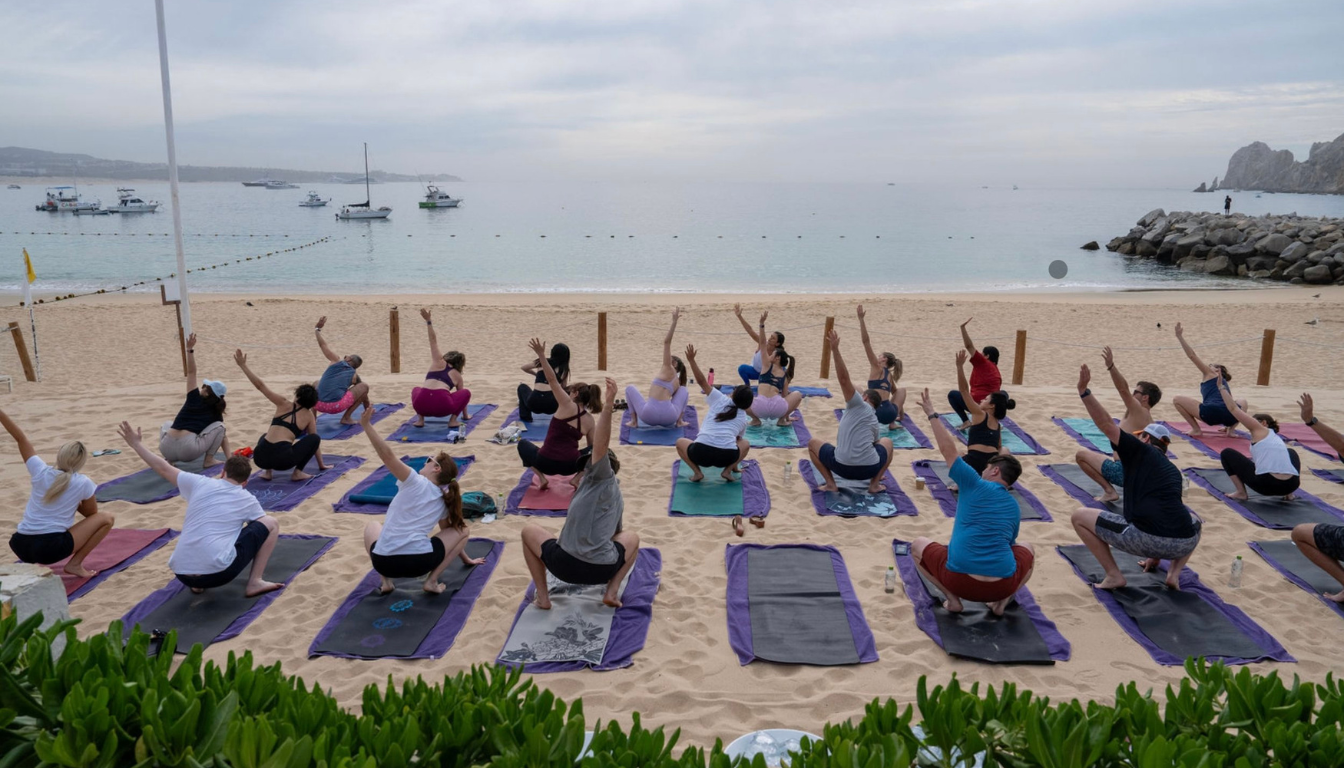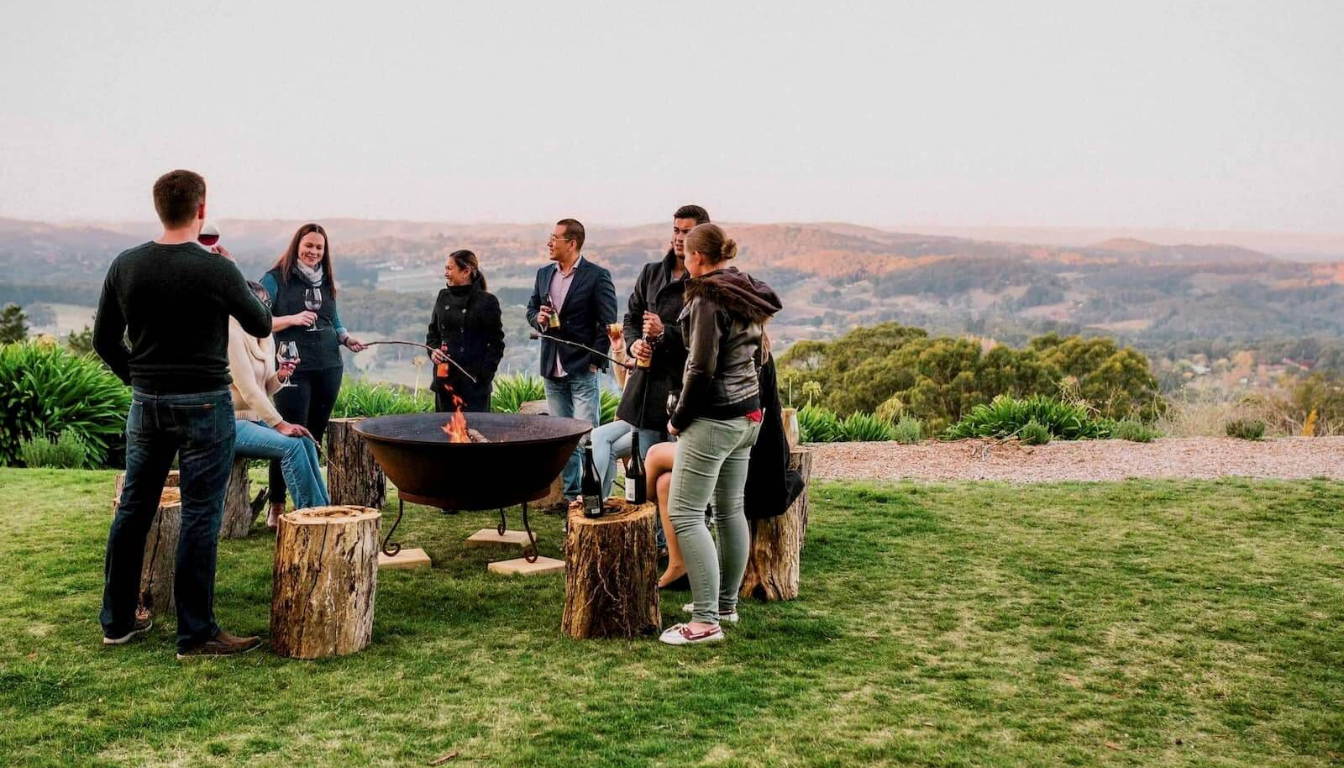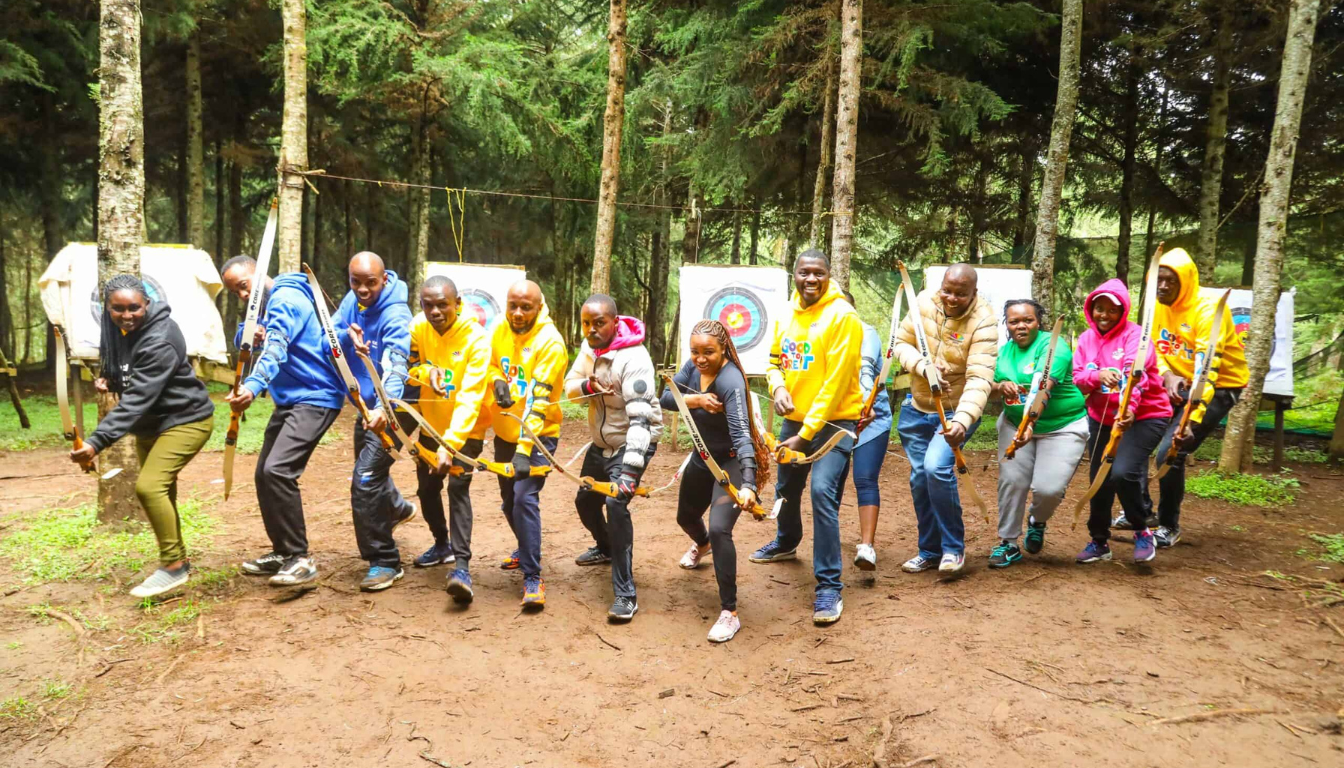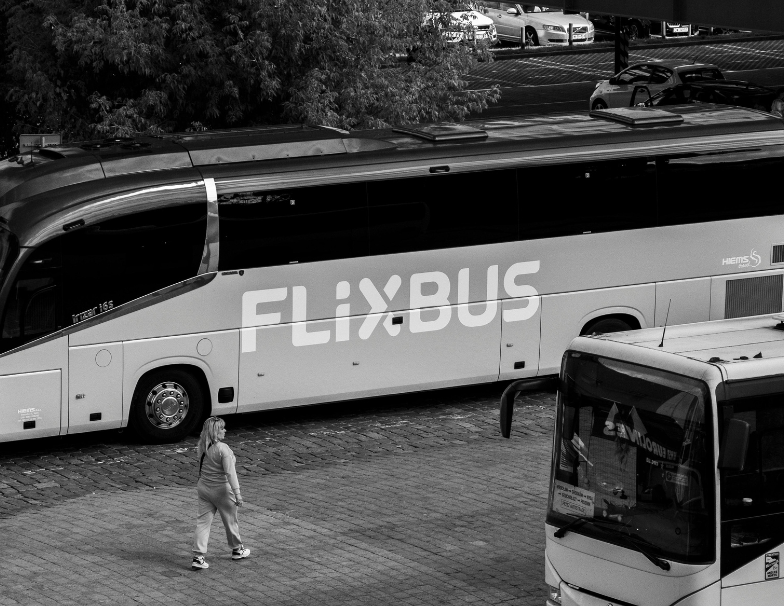Team Building Retreats: Complete Guide to Stronger Teams

Team building retreats are no longer optional perks they're essential investments in your organization's future. In today's remote-first workplace where employees work from home and communicate through screens, bringing teams together in person has never been more valuable.
A well-executed team building retreat goes beyond trust falls and awkward icebreakers. It transforms coworkers into collaborators, breaks down communication barriers, sparks innovation, and creates bonds that withstand workplace challenges long after everyone returns to the office.
This guide provides everything you need to plan effective offsites that deliver measurable results, from setting clear objectives to choosing the right activities and measuring long-term impact.
Key Takeaways
- Offsites boost performance: Companies with engaged teams avoid the $550 billion yearly loss from disengaged employees
- Plan with clear objectives: Use the SMART framework to set specific, measurable, achievable, relevant, and time-bound goals
- Measure results: Track employee engagement, retention rates, collaboration quality, and innovation metrics to prove ROI
- Choose venues wisely: Hotels work for large groups, vacation rentals for intimate teams, unique venues for memorable experiences
- Allow downtime: Unstructured free time often creates deeper connections than scheduled activities
Why Team Building Retreats Are Essential
Many companies hesitate when considering these offsites. Won't pulling employees away from work hurt productivity? The reality proves otherwise. Companies with disengaged employees lose up to $550 billion yearly, according to Forbes. An underperforming, disconnected team makes achieving organizational goals nearly impossible.
Engaged teams consistently hit financial and operational targets. These experiences become game-changers—they boost teamwork, unlock potential, and create measurable positive impact on company culture.

Many companies hesitate when considering these offsites. Won't pulling employees away from work hurt productivity? The reality proves otherwise. Companies with disengaged employees lose up to $550 billion yearly, according to Forbes. An underperforming, disconnected team makes achieving organizational goals nearly impossible.
Engaged teams consistently hit financial and operational targets. These experiences become game-changers—they boost teamwork, unlock potential, and create measurable positive impact on company culture.
The Business Case for Offsites
Enhanced Collaboration
Teams that spend quality time together in person develop better working relationships, leading to smoother collaboration and faster problem resolution back at the office. Team building retreats create environments where genuine connections naturally evolve through shared experiences.
Cultural Reinforcement
Offsites actively strengthen company culture, helping employees grasp the roots and reasons behind company values. When team members understand their collaborative role in achieving common goals, it sparks genuine excitement about work.
Innovation Catalyst
Breaking away from routine and exposing employees to fresh experiences sparks creativity. The retreat setting creates a level playing field where everyone feels comfortable sharing ideas without workplace hierarchies.
Employee Retention
Companies that invest in meaningful offsites demonstrate commitment to employee wellbeing. Shared experiences uplift morale and make employees feel valued—crucial for maintaining motivated workforces and reducing turnover.
Relationship Building
Personal connections formed during these gatherings translate to better communication, increased trust, and stronger teamwork. Face-to-face interaction in relaxed settings strengthens professional relationships and reduces feelings of isolation among remote employees.
Planning Your Team Building Retreat

Setting Clear Objectives
Use the SMART framework to establish clear, achievable objectives:
Specific: Define exactly what you want to accomplish
Measurable: Establish metrics for success
Achievable: Set realistic goals for your timeline
Relevant: Align with business needs and team challenges
Time-bound: Set clear deadlines and milestones
Common Team Building Retreat Objectives
- Foster trust and collaboration through shared experiences
- Enhance communication and break down silos
- Strengthen company culture and values alignment
- Combat burnout through wellness and recharge activities
- Drive innovation through creative brainstorming sessions
- Celebrate achievements and recognize team contributions
Budgeting for Success
Budget Ranges (per person, 3-day retreat):
Budget-Conscious: $800-1,200 (lodging, basic meals, simple activities)
Mid-Range: $1,500-2,500 (nice accommodations, most meals, curated activities)
Premium: $3,000-5,000+ (luxury venues, all meals, exclusive experiences)
Budget Components:
- Transportation and travel
- Venue rental or hotel accommodations
- Food and catering
- Team building activities and facilitators
- Emergency contingency fund (10-15% of total)
Choosing the Right Venue
Hotels & Resorts
Best for large groups and professional development focus. Offer meeting facilities, on-site catering, and comprehensive amenities with dedicated event planning support.
Vacation Rentals
Best for smaller teams and intimate bonding. Provide open living spaces, full kitchens for team meals, and home-like environments that feel less corporate.
Unique Venues
Best for memorable experiences. Options include upscale glamping, boutique properties, historic venues, and specialty retreat centers that create lasting impressions.
Offsite Resources: Offsite's marketplace features hotels, meeting spaces, and vendors for corporate retreats in cities like Austin, New York, San Francisco, Denver, and Miami, plus comprehensive planning services.

12 Essential Team Building Activities
Outdoor & Adventure Activities
1. Scavenger Hunts
Engaging activities that encourage teamwork and strategic planning. Can include neighborhood exploration, augmented reality experiences, or problem-solving challenges that enhance communication and collaboration skills.
2. Escape Rooms
Immersive challenges that require teams to solve complex problems under time constraints. Themes like mystery scenarios or survival challenges promote communication, critical thinking, and collaborative decision-making.
3. Outdoor Adventures
Activities like hiking, kayaking, and water sports facilitate physical fitness while enhancing team camaraderie. These experiences encourage teamwork, communication, and leadership demonstration through shared accomplishments.
4. Team Sports
Easy-to-learn sports like pickleball, volleyball, kickball, and ultimate frisbee focus teams on shared goals. Low-impact activities that don't require expensive equipment make excellent icebreakers while promoting healthy competition.
Creative & Professional Development
5. Cooking Classes
Team members bond over shared culinary experiences, working together to create dishes. The collaborative cooking process breaks down barriers and guarantees a team meal everyone can enjoy together.
6. Art Classes
Collaborative art projects encourage free expression and creative thinking. Working together on paintings, murals, or mixed media projects builds trust and enhances interpersonal relationships.
7. Leadership Workshops
Structured sessions with expert facilitators help teams practice decision-making, critical thinking, and strategic planning. These workshops develop leadership skills while strengthening team capabilities.
8. Innovation Labs
Cross-functional sessions designed to encourage creative thinking and collaboration across departments. These labs break down silos and generate new ideas that benefit the entire organization.
Wellness & Social Activities
9. Yoga and Meditation
Guided relaxation and mindfulness activities foster calming environments that enhance wellbeing. Morning yoga or evening meditation reduces stress and promotes mental clarity for better team dynamics.
10. Spa Treatments
Group wellness experiences like massage therapy, aromatherapy, or fitness classes significantly reduce stress while promoting relaxation and rejuvenation among team members.
11. Group Discussions
Structured conversations on key company issues encourage open idea sharing and brainstorming. Formats like breakout discussions or roundtables help teams understand diverse perspectives and generate innovative solutions.
12. Game Nights
After long days of activities, casual game nights provide perfect endings. Casino nights, trivia competitions, charades, and board games create informal interaction and laughter that deepens relationships.
The Most Important Activity: Downtime
Give teams free time to recharge. Unstructured moments like sunset fire pits, poolside conversations, and personal exploration often create deeper connections than scheduled activities. This downtime helps team members feel truly "off the clock."

Evaluating Team Building Retreat Success
Post-Retreat Surveys
Collect feedback within one week covering:
- Activity effectiveness and engagement
- Venue and accommodations quality
- Overall atmosphere and value
- Suggestions for future improvements
- Impact on team dynamics
Measuring Long-Term Impact
Track metrics over 3-6 months:
- Employee satisfaction and engagement scores
- Retention and turnover rates
- Project completion times and quality
- Collaboration frequency and effectiveness
- Innovation metrics (ideas generated, initiatives launched)
- Communication improvements
Continuous Improvement
Use feedback to refine future offsites:
- Build on successful elements
- Eliminate ineffective activities
- Adapt to changing team needs
- Incorporate new ideas and trends
- Enhance value with each retreat
How Offsite Simplifies Retreat Planning
Expert Guidance: Retreat recommendations based on your objectives, activity suggestions tailored to team size, and budget optimization advice.
Comprehensive Coordination: Single point of contact for all arrangements, vendor coordination, travel logistics, and on-site support during your retreat.
Premium Partnerships: Access to vetted venues with pre-negotiated group rates, quality assurance, and exclusive amenities.
Customized Experience: Tailored itineraries, professional facilitators, and flexible packages for any budget.
24/7 Support: Activity planning, local expertise, real-time support during retreats, and post-event follow-up assistance.
Final Thoughts
These offsites are essential investments that deliver measurable results when thoughtfully planned with clear objectives, balanced programming, and genuine care for team wellbeing. These retreats create lasting impact through authentic human connection, shared experiences that build trust, and memories that strengthen teams long after everyone returns to work.
Whether you prioritize outdoor adventure, creative workshops, wellness experiences, or structured collaboration, focus on bringing your team together in meaningful ways that make them excited to work together again.
Ready to plan your transformative retreat? Contact Offsite for expert guidance on venues, activities, and logistics perfectly matched to your team's needs.
FAQs
- What's the ideal duration for a team building retreat?
Most successful offsites last 2-4 days. This provides enough time for meaningful activities and bonding without disrupting business operations too long. Two-day retreats work for budget-conscious teams, while three to four days allow for deeper team building work and more varied experiences. Balance structured activities with adequate downtime for organic connections.
- How do offsites improve company culture?
These experiences strengthen company culture by fostering meaningful relationships through shared experiences away from daily pressures. These retreats help team members understand the roots and reasons behind company values, enabling them to embody these principles in daily actions. As teams recognize their collaborative role in achieving common goals, this creates genuine excitement and cultural alignment that persists long after the retreat ends.
- What's a reasonable budget per person for a retreat?
Budget-conscious options range from $800-1,200 per person for 3 days, including lodging, some meals, and basic activities. Mid-range experiences cost $1,500-2,500 per person with nicer accommodations, most meals, and curated activities. Premium luxury retreats run $3,000-5,000+ per person, featuring exclusive venues, all meals, and high-end experiences. Remember to factor in travel costs separately and include a 10-15% contingency fund.
- How do I measure the ROI of a team building retreat?
Track both quantitative and qualitative metrics. Quantitative measures include employee satisfaction scores, retention rates, project completion times, collaboration frequency, and innovation metrics like new ideas generated or initiatives launched. Qualitative feedback comes from post-retreat surveys, testimonials, manager observations of improved team dynamics, and behavioral changes in meetings and communication. Compare pre and post-retreat baselines over 3-6 months to measure lasting impact.
You may also like
Unique spaces for your next offsite
Find distinctive venues for your upcoming corporate retreat.
Stay Updated with Our Insights
Get exclusive content and valuable updates directly to you.







